
Toddler Development Guide with a Long List of Milestones
The second and third year of your child's life will be filled with many toddler development milestones that will propel your little one from complete dependence to taking the first few steps toward proud independence.
In this parenting article I will present you with many of the
exciting physical, social and psychological toddler milestones your
child is bound to reach in the time between his first birthday and
his third birthday.
If you wish to skip the upcoming
introduction and go directly to the lists of toddler milestones, you
can do so via these links:
- Toddler milestones: 12-18 months. (From one year old to a
one-year-and-a-half)
- Toddler milestones: 18-24 months. (From
one-year-and-a-half to two years old)
- Toddler milestones: 24-30 months. (From two years old
to two-and-a-half years old)
- Toddler milestones: 30-36 months. (From two-and-a-half
years old to three years old)
Introduction:
Why Toddlerhood May be
Turbulent
 As your
baby grows into a toddler
he or she is growing into new interesting abilities and skills
which is wonderful and fascinating but also holds certain
challenges on an existential level.
As your
baby grows into a toddler
he or she is growing into new interesting abilities and skills
which is wonderful and fascinating but also holds certain
challenges on an existential level.
In order for you to
understand what your toddler might be going through during his
or her development years, I want you to try and put
yourself in your child's shoes.
I want you to imagine
that all of a sudden you discover that you have will. (Yes,
this may sound silly but this is actually new stuff to your
child.) Also you realize that your will that has an effect on
the world. An effect on yourself and on other people. All of a
sudden you consciously realize that you can make things
happen.
Wow!
You didn't know this before but do
now. Do you see the attraction of that?
Your Toddler Has Been Given a Magic Wand but Doesn't Really Know How it Works Yet
During their toddler years children start to slowly become aware of
this powerful knowledge of 'I can make stuff happen according
to how I want it'.
This is a truly wonderful insight on
the one hand but also quite a big mouthful on the other
because your child still has no idea of balance or
consequences.
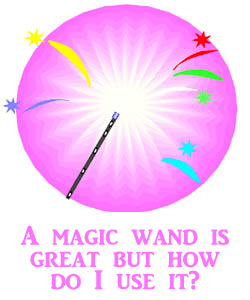 It's like they have been given a magic
wand that is desirable, powerful and influential but still
don't quite really know how works.
It's like they have been given a magic
wand that is desirable, powerful and influential but still
don't quite really know how works.
They still have no
idea of how much can they decide for themselves and for
others? What is good for them long term? What is doable or
acceptable and what is not?
During toddlerhood, children thus face the challenge of:
- The exciting new prospect of independence and autonomy
which comes with the ability to finally be able to do things
by themselves and make stuff happen.
- And still not quite mastering new ambitions or being aware of the consequences of actions or desires and therefore still being highly dependent on you, the parent.
Therefore it may
seem like your once cuddly and compliant baby is now always
stamping her feet in temper tantrums or filling your home with
an endless repetition of "no!" and "me do it!".
But
seen from your child's perspective this is completely
understandable. Having boundaries set in a world you just
realized was open for your footprint or not getting your newly
acquired will is just not fun!
And yet still, there
will also be times when your child will throw herself onto
your lap in utter frustration and ask for your help or
guidance. Your child can now get around by herself, but there
will be times when she wants to be carried. Your child will be
able to communicate her wants and needs, but may still cry
when she can't find the right words.
In this parenting
toddlers article I suggest how may resolve a typical toddler
tantrum in 3 steps only. Besides showing
unconditional love,
one of the important insights is realizing that
what your
toddler wants, may not be what he or she needs.
Your Most Important Job Is to Be a Solid Pillar of Love and Security During All This Change
 As adults, we would find it very stressful to
experience that much change is such a short period. But
fortunately your toddler is "wired" to learn rapidly and
process a lot of incoming information.
As adults, we would find it very stressful to
experience that much change is such a short period. But
fortunately your toddler is "wired" to learn rapidly and
process a lot of incoming information.
However, as
quickly as he is advancing through his development, he
is still a little child and it is the security and reassurance
he receives from you that gives him the courage to step out
and explore the world around him.
Your love and
acceptance paves the way to reaching toddler milestones.
Always being behind your child in emotional
supportive sense is at the core of famous psychologist
Erik
Erikson's "autonomy versus shame and doubt" stage which
children go through between the age of 2-3.
To help
your child balance the two apparently opposite abilities of
will and self-control, Erikson stresses the importance of
providing a space of acceptance and love at home which will
prompt your child to seek out and try, explore and ultimately
gain new skills without the fear of failure.
Always
being a safe harbor fuels your child's lust for life and
exploration.
John Bowlby is regarded as the father of
attachment theory, although much of his premise is based on
ideas previously introduced by
Sigmund Freud.
According
to Bowlby, the "safe haven" and "secure base" provided by
parents and caregivers make up the foundation of emotional and
personality development.
If your toddler feels like he
can explore the world and in the process fail and screw up and
still come back to you for unconditional encouragement and
support, then you indirectly tell your child: 'Go out there,
find out what you can do, find out how far you can take your
abilities. I will always be here no matter what.'
Giving your child this intuitive knowledge of unconditional
support regardless of success or failure will help your child
try and ultimately become the best he or she can.
Now,
how powerful is that!!!
This unconditional acceptance
of your child is also relevant when it comes to supporting
your toddler through the years of early childhood development.
When it comes to toddler development it is important to
remember that your child is unique and that toddler milestones
are only average. Each child will develop at her own rate.
Also there will probably be times when she retreats back
to babyhood as a way of coping with fear or anxiety.
But, by her third birthday you will be able to look back and
truly celebrate how far you have come – together.
This
was the intro to this parenting toddler article on toddler
milestones. Let's move onto those toddler milestones.
Toddler Milestones: 12-18 Months
Physical Development: 12-18 Months
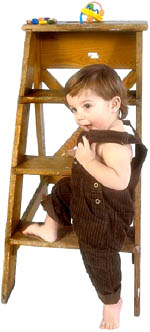 Walking and climbing
Walking and climbing
Not only will your toddler be walking
alone, but he will probably be trying to crawl or climb up the
stairs. He may even begin walking down the stairs by placing
both feet on the same step, or he might just move from step to
step while sitting on his bottom. It really isn't about "how"
he gets down those stairs, just that he has the ability to go
both "up" and "down" on his own. :-)
He will also use
this new-found ability to climb onto things, such as a chair
or sofa, as well as out of things, like his crib or stroller.
As a parent, your life will become much busier just trying to
make sure that your little one stays safe and unharmed.
Pushing toys and squatting
He will have great fun
pushing and pulling toys while walking, and he may even enjoy
travelling around on a ride-on toy.
He may begin to
walk backwards, possibly run (although he will likely lose his
balance easily and fall into things), and will be able to
squat down to pickup something.
Kicking a ball
He
may begin trying to kick or throw a ball and open and close
cupboards or lids.
Eating with his fingers
By now,
he is probably using his fingers to pick up small pieces of
food and feeding himself, but he may also begin using a spoon
– although you can expect a wee bit of mess since his aim will
still be quite "hit and miss".
Drinking from a cup with
a lid
Though you may still be nursing, your toddler will
also enjoy drinking from a cup with a lid. His fine motor
skills have improved to the point where he will proudly turn
the pages in a book while you read to him, and will scribble
using a large crayon.
Copying a line
During this
stage of toddler delvelopment, your toddler may be able to
copy simple lines, but don't worry if his coordination isn't
developed enough for this yet.
To help develop his hand
skills, introduce some food quality play dough that he can
roll, squeeze, and pat.
Social and Emotional Development: 12-18 Months
Your toddler is still fairly self-centered (which is different from being selfish), meaning his ability to understand the feelings and emotions of others is still developing.
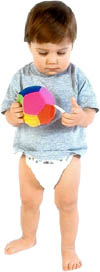 Still only seeing
personal needs
Still only seeing
personal needs
As a result, he will love being the center
of attention, but he will prefer to play by himself. He has
yet to grasp the concept of sharing so he may fight with other
children and show jealousy if your focus is on another child
or sibling.
Might be soothed with an object that
represents security
Even though he will want to do things
on his own, he will become easily frustrated and may even have
a security blanket or special toy that he will snuggle when
feeling discouraged or sad.
Some parents are uncertain
about allowing their child such attachments, but remember that
your toddler is going through a lot of toddler development
changes and having a "special something" provides him with a
sense of security when your are not around or when he is
forced to deal with unfamiliar situations.
Mimicking
roles
Your toddler will love to copy you because he looks
up to you and wants to do what you do. So, he may pretend to
cook, play on the computer, or drive a car. This is a great
time to mimic appropriate behaviour and responses because it
will help him learn how to act in social situations later in
life.
Resisting limitations
He will want to explore
and try new things, so he will also resist limitations and may
"disobey" you. Keep in mind that he doesn't yet fully
understand the purpose of boundaries. All he knows is what he
feels and thinks, so he doesn't realize that his behaviour has
an impact on you.
Your child is not "being bad", but is
simply trying to figure out how to "be himself".
Holly
Bennet and Teresa Pitman, in their toddler development book
Steps & Stages: 1 to 3, state,
- "When parents understand that so-called toddler negativity is a normal developmental stage, not a sign of inadequate discipline, it's easier to take it in stride" (page 4).
Canadian parent educator, Kathy Lynn, adds to this when she says,
- "Parents can get into terrible difficulty when they take this personally. All that negativity is directed to your child's confusion and fear, not you. You don't have to fight it. Just accept it, and trust in the ability of your child to get through it. Parents help by easing the transition, celebrating the transition, and supporting the transition" (Steps & Stages: 1 to 3, page 4).
Familiarity is important
Although your little one will love to explore, he will also
find security in familiarity. He will be more likely to take
risks and try new things if someone he trusts is near-by.
Even though he may not fully understand how his actions
make others feel, he does know that love and affection make
him feel good, and he may begin to express this by giving hugs
and kisses to parents, caregivers, and even pets.
Cognitive and Psychological Development: 12-18 Months
Mastering object
permanence
At this development stage, your toddler
will have a good grasp of object permanence and will realize
that things exist even when she cannot see them. She will look
for something where she last saw it and will ask for a toy
that you took away, or remember a game that you played a few
days ago.
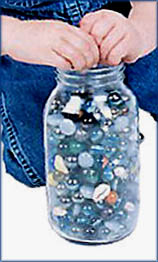 Making things fit
together
Making things fit
together
Her learning experiences will be very "hands on"
and she will love to play games where she has to fit shapes
into holes, stack objects according to size, and build things
using sand or play dough.
The first categorisations
She may begin to develop the ability to group items based on
similarities such as separating clothing into piles of socks,
pants, shirts, and towels. You may also notice that she is
beginning to recognize colors, and possibly even some shapes.
Understanding simple step-by-step directions
She will
be able to follow simple instructions such as, "come here and
put your shoes on", although she may not always want to.
Expecting routine
And, she will definitely expect her
life to follow a predictable routine, often becoming upset if
her schedule is changed.
Knowing what to expect is a
great source of security in her rapidly changing world, and
establishing a reliable routine is a good way to help prevent
the recurrence of separation anxiety.
Recognize items
in books
She will also be able to identify objects in a
story book, so keep reading to her – it is great for cognitive
and language development.
Two to three word sentences
Your toddler's language and communication skills are also
improving at a rapid speed. Her vocabulary is quite large and
she is likely forming two or three word sentences such as "all
gone", "me do it", or "mommy home".
She can now inflect
her voice at the end of a sentence to ask a question, and will
try to sing songs or copy animal sounds.
Of course, she
will make frequent use of the word "no", but look at it in a
positive way – at least she understands what you are saying to
her and is responding to your request in context. Although it
may often seem frustrating, it really is one of the major
toddler milestones in cognitive and language development.
Toddler Milestones: 18-24 Months
Physical Development: 18-24 Months
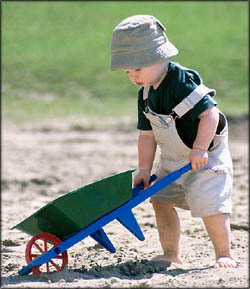 Using wheeled toys
Using wheeled toys
Sometime before your toddler's second birthday, she will be
using her feet to scoot along on a wheeled toy, kicking a
ball, walking backward and sideways, squatting without losing
her balance, and she may even be jumping up and down.
Playing catch
She will play ball with herself by throwing
the toy and then running to get it, but she will also enjoy
playing 'catch' with you.
Try to use a large ball, as
this is much easier for your little one to catch.
Sitting down into chairs
You may also notice that she backs
up slowly and aims her bottom when sitting down into a chair,
although her "landing" may be a little rough.
Walking
on tip toes
During this stage of development, she
might often walk around on her tip toes – this is quite normal
but keep your eye on this situation. Some children who carry
this habit into later years often develop a shortening of
muscles and have difficulty actually flattening their feet.
Removing lids, drawing lines and perhaps cutting
Her
fine motor skills are continuing to improve and she will be
able to remove lids from containers, string large beads, and
copy straight lines, crosses, or circles using a crayon or
marker.
She may even show some interest in cutting with
child-sized scissors, but will not be able to follow lines.
Just let her snip away, as it will help improve her accuracy
and skill.
Undressing
She might like to undress
herself, especially removing her shoes or socks, but may not
always be able to re-dress.
Open doors
And, she will
now be able to open doors, so this would be a good time for
some child safety door knob covers.
Toddler Social and Emotional Development: 18-24 Months
Your child's independence will continue to assert itself and he will insist on doing things without your help.
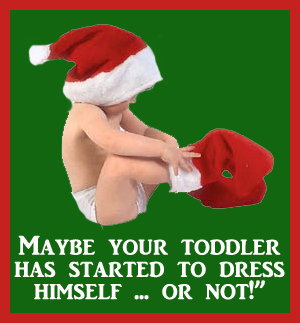 Perhaps wanting to start
putting on clothes alone
Perhaps wanting to start
putting on clothes alone
He may start to dress himself, and
you can encourage this by providing simple clothing such as
pull-on t-shirts, elastic waist pants, and slip-on shoes. Lots
of buttons and snaps and belts look stylish but they can
become a great source of frustration.
Insisting on
doing things by himself is one of the important toddler
milestones in seeing himself as a separate person. Up to this
point, he has been completely dependent on his caregivers, but
now he is beginning to realize that he can make choices and
achieve goals all on his own, independent from you.
Yes, he will say "no" a lot (even more if he hears it a lot),
but it is not meant as a form of disrespect. It's his way of
establishing his identity as a separate individual. This is a
natural part of his development.
Prefers to
play alone or with an adult
He will still have trouble
sharing, although he may occasionally surprise you. He will
usually prefer to play alone or with a non-threatening adult
than with a similarly aged child.
Showing signs of
empathy
Your child may not yet be aware of the effect his
actions have on others, but he is beginning to gain an
understanding that the people around him may have feelings.
If another child is crying, he may show concern. Or if you
seem sad, he may pat your back or crawl on your lap.
Perhaps new fears arise
This may also be a time when he
develops new fears and will be cautious around people he
doesn't know.
Routine will be very important and he
will not like any changes in schedule. He may depend even more
on his security blanket or cuddly toy to help him through
these challenging times.
Remember, even though he wants
to do things on his own, he still needs your encouragement and
support and will often seek you out for help and comfort. A
hug and a kiss, and a little bit of help will be all the
recharging he needs before tackling his next development adventure.
Cognitive and Psychological Development: 18-24 Months
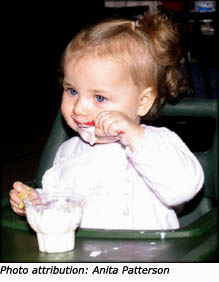 Using tools properly
Using tools properly
At some point during these months, your toddler will begin to
use items properly, such as putting a telephone to his ear or
using a toothbrush to clean his teeth.
Getting a broad
notion of time
He may begin to acquire a broad concept of
time and understand phrases like "when we get home" or "after
your nap".
Decoding familiar faces in photos
Not
only will he be able to identify pictures in a book, but he
will also recognize familiar faces and objects in a
photograph. He may even be able to point to himself.
Interested in counting
His memory is continuing to improve
and he may begin to show an interest in counting, particularly
as it relates to items he can see. A greater ability to
remember will allow him to follow two part directions such as,
"Put away your blocks and bring me a book so we can read a
story."
A 200 word vocabulary
By this age, your
toddler will have about 200 words in his vocabulary, and this
number will continue to increase rapidly.
Although he
may only speak to you in three or four word sentences, you may
hear him babbling or chattering while playing alone. What he
is saying may not always make sense, but his stuffed animals
or toy cars won't care. This type of chatter is a great form
of experimentation and discovery that helps with language
development.
Singing and repeating
He may also
repeat things that he has heard you say, even if he doesn't
know what these words or phrases mean. And, of course, he will
probably sing songs and add actions, especially if this is
something that you do together often.
Using plurals
You will know that your toddler has reached a new language
milestone when he begins to use plurals and past tense,
although he may not initially use them correctly.
For
example, he may use "foots" instead of "feet" or "goed"
instead of "went". This is perfectly normal and a good sign
that your little one is beginning to grasp some fairly complex
concepts.
Toddler Milestones: 24-30 Months
Physical Development: 24-30 Months
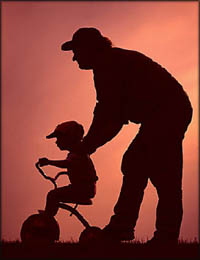 By this age, your toddler has become a
very active little individual.
By this age, your toddler has become a
very active little individual.
Her rapid development will take her to levels where she may be walking
backwards and sideways, running and jumping, climbing up and
down the stairs, and scooting around on a riding toy. You will
no longer need that aerobics class, since keeping up with your
child will be quite the workout! :-)
You can assist her
balance and co-ordination by helping her walk on a narrow beam
or teaching her to pedal a tricycle.
She may enjoy
these challenges, but if you sense a lot of frustration, wait
a month or so before re-introducing. You want to make sure
your toddler always feel confident when tackling new tasks,
rather than discouraged and fearful of failure.
Scribbling with a crayon
She will love to scribble with a
crayon, although she may hold it with her fist rather in a
pincher position. If this is the case, don't worry, just let
her draw in whichever way she feels like.
If she is
open to it you may help her with proper grip, but she may have
a difficult time manipulating her fingers into this position
and the most important thing here is that she has fun.
Duplicating simple art
At this age, your toddler will like
to duplicate your artwork, and will copy horizontal and
vertical lines as well as crosses and circles. She may also be
able to fold and snip paper, but accuracy will vary depending
on coordination development.
Stringing beads
Her
fine motor skills will have developed to the point where she
can pick up small beads using her thumb and index finger and
string them with fairly good accuracy.
Perhaps
interested in potty training
She will be able to unzip
zippers, unsnap snaps, and may begin showing an interest in
being potty trained.
Potty training is often a great
source of stress for both the parent and the toddler. Many
parents feel a pressure to have their children out of diapers
by a socially approved age.
Toilet training is a skill
to be developed, and your little one must be ready to tackle
this challenge. If her body has not matured to the point where
she has the muscle control and a cognitive understanding for
this task, you will be asking something of her that she simply
is unable to deliver.
In this way thinking in terms of toddler
development milestones becomes more of a burden than a help.
Although you may feel that potty training is a reflection
on your discipline and parenting abilities, psychologist
Penelope Leach states, "Toilet training is not a question of
making your child do something for you. It is a matter of
helping him do something for himself" (taken from
Steps &
Stages: From 1 to 3, page 50).
When it is worth it to
him, he will do it. Until then, relax, put your thoughts of
'proper' toddler milestones and
achievements on the self and enjoy your child for what he is
right now! :-)
Social and Emotional Development: 24-30 Months
Your toddler will be even more independent than ever and will continue to insist that he do things by himself. However, despite his confidence in all his toddler development achievements, he will still want your unconditional support and encouragement.
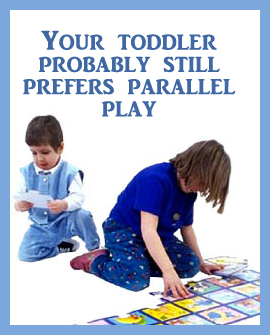 Still parallel playing
Still parallel playing
While he will enjoy playing near other children, he will
probably still prefer parallel play rather than cooperative
play.
Distinguishing girls from boys
He will begin
to recognize the difference between boys and girls and may
even be able to associate "girl" things from "boy" things. Of
course, these distinctions will be based on his socialization.
More overt reaction to other people feelings
While his
ability to play with others will be limited, he will notice
the emotions of others and respond to them accordingly.
For example, your toddler may cry if another child cries.
Or, he may seek you out for security, if someone else shows
fear or uncertainty.
Clear likes and dislikes
He
will have very clear likes and dislikes, and will make his
feelings known, although he may show frustration if others do
not understand what he is trying to communicate.
More
comfortable around unfamiliar people
He will still be shy
around strangers, but he may be relaxed around unfamiliar
people if he believes that you are comfortable with this
interaction.
Cognitive and Psychological Development: 24-30 Months
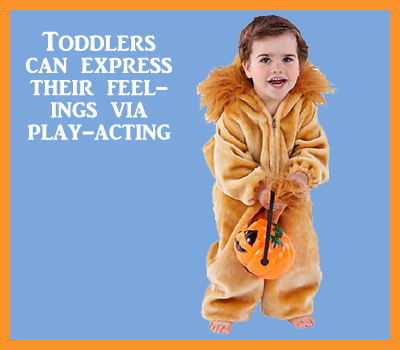 Play-acting
Play-acting
At this age in her
development, your toddler will express her feelings by
play-acting.
As a parent or caregiver, it is a great
way for you to see how your little one is interpreting and
processing the world around her. If she is able to engage in
some level of cooperative play, she may enlist other children
as actors in her play.
For example, one child may be
the mom while the other is the dad. Or, your toddler may act
out the role of the parent, while his friend takes on the part
of the baby. This play will be simplistic, but you may even
hear phrases and words that you use quite regularly.
Stronger categorization skills
She will begin sorting more
complex objects, such as different shapes and sizes or types
of animals.
Sharper concentration
Her attention span
and problem solving skills are improving and she may now enjoy
completing simple puzzles or combining toys. For example, she
may use play dough to make "cookies" for her tea party, or
line her story books up to create a road for trucks and cars.
Better numeral understanding
She may begin to
understand the sequence of numbers and will grasp the concept
of "one more than".
Better memory
Her memory will
have also improved and she may be able to recall past
activities, and recount these events when looking at
photographs or specific objects.
Using personal
pronouns
Her language skills are continuing to advance, and
sometime during this period she will probably begin speaking
more often in personal pronouns such as "I" or "me".
Using the 'why' word
When asked, she will be able to give
both her first and last name, and may even know her age. She
will love to sing, recite rhymes, and ask lots of questions.
This time during development, you will also start
to hear "why" so often that the word will echo in your sleep.
But, your answers will help your toddler create associations
and develop problem solving and reasoning skills. "Why" is how
she learns, and the more she knows, the more independent she
will become.
She will be able to follow more complex
directions, answer questions, and use descriptive words such
as "wet" or "full".
Toddler Milestones: 30-36 Months
Physical Development: 30-36 Months
Action games
Your toddler's coordination will have improved to the point
where she can participate in action games such as "Hokey
Pokey" or "Simon Says".
She will enjoy running,
twirling, skipping, and even rolling. She will be able to
balance on a beam, ride a tricycle quite adeptly, throw or
kick a ball with fairly good accuracy, and use her climbing
skills to use a slide or other playground equipment.
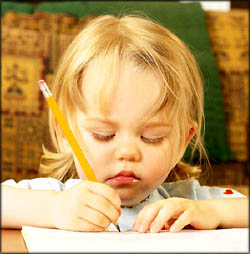 Better at drawing
Better at drawing
Her fine motor abilities
have continued to improve (and will all through her toddler
development stage) and she will now be able to use a pencil or
crayon with enough control to copy more complex lines such as
squiggles or zig zags.
Using connecting toys
She may
also be able to play with connecting toys such as "Lego"
blocks or trains, and will enjoy play-acting using finger
puppets.
Turning book pages
She will be able to turn
the pages of a book one at a time, and can even separate pages
that have turned together.
Social and Emotional Development: 30-36 Months
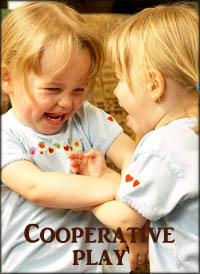 Cooperative play with other kids
Cooperative play with other kids
In this phase of toddler
development, your child will now move into cooperative play
and will enjoy interacting with other children, although her
ability to share and take turns may still be developing.
Stronger imagination
She will use her imagination even
more extensively, but may have difficulty separating the real
from the unreal. She may even have an imaginary friend.
Still copying adult behavior in play
She will still
continue to copy adult behavior such as shopping or cooking,
and much of her reaction and response to situations will mimic
your own.
Less hesitant with new people
She will be
fearful of unfamiliar events, but will be less hesitant around
new people.
Talking about feelings
She will be able
to talk more about her feelings and will also have a better
understanding that other people have emotions as well. For
example, she will be able to tell you if someone is sad or
angry, and may even recall times when she felt this same way.
Offering help
Now that she is gaining confidence in her
abilities, she may offer to help other children, and will also
take great pride in assisting you with chores around the
house.
Cognitive and Psychological Development: 30-36 Months
Using words of graduation
Your toddler
will now be able to distinguish between various sizes and use
words such as "bigger" or "smaller" to describe these
comparisons.
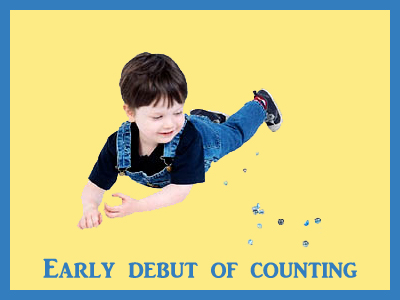 Counting
Counting
She will be
able to count small numbers of objects and may show signs of
logical thinking. For example, she may gather all her art
supplies before making a picture.
Noticing details
She may begin noticing small details and changes, such as a
flower bud opening or leaves changing colors in the fall.
Understanding events related to time
Her concept of
time is growing, and she will be able to understand general
segments such as "supper time" is after lunch, or "bedtime" is
when it is dark.
Longer sentences
Of course, she
will continue to ask a lot of questions, and her sentences
will become longer and more complex. She will say "please" and
"thank you" as well as "hello" and "good bye", and will be
able to communicate clearly enough that other children and
adults understand. She will be able to explain her drawings
and describe her day, and may also finish familiar stories or
make up alternate endings.
Her grasp of position words
is increasing throughout this particular toddler development
stage and she will display an understanding of concepts such
as "inside", "outside", "under", or "around".
Positive Toddler Development Tips
Through the toddler
years you will all learn from each other, build a strong bond,
and celebrate many toddler milestones.
"Toddler-hood"
is an amazing time in your child's life and there a few things
that you can do to help to make all the toddler development
changes and transitions much easier for your little one to
handle.
Here are some
positive parenting tips to inspire you:
- Continue to breastfeed for as long as it
is needed. Meaning for as longs as it makes sense to you and
your toddler - even if it is only once a day. Breastfeeding is
so much more than food. It's bonding, security and closeness.
- Play a lot of music, dance, and sing songs with plenty
of fun actions.
- Spend time playing with each other
and developing age appropriate skills such as throwing and
kicking balls, stacking blocks, and completing puzzles.
- Find child-sized tools and sports equipment so your
toddler can participate when you are working in the garden,
doing housework, or playing soccer and baseball.
- Make a habit of exploring the outdoors, such as going for
walks, visiting parks, or kicking balls.
- Play games
that allow your toddler to pretend or use his imagination such
as fluttering like a butterfly, galloping like a horse, or
flying like an airplane.
- Encourage your child to
dress herself by providing simple clothing. But try not to
force it through. Often girls will be more interested than
boys. Use the window of opportunity if there is one. If there
is none right now, just wait.
- Offer plenty of age
appropriate art materials such as crayons, markers, paper,
safety scissors, beads, cotton balls, or other creative items.
- Your toddler will love to copy adult behaviour, so
provide her plenty of opportunities by letting her help with
baking, dusting, or sorting laundry.
- Read to your
child as often as possible, and talk about what you have read.
Perhaps consider making a reading a bedtime ritual.
- Follow a regular routine as much as possible.
- Give your toddler plenty of opportunity to be around other
children, but do not force interaction until she is ready.
- Use stuffed toys or dolls to model appropriate social behaviour such as sharing and taking turns.
- Give
your child opportunities to make choices on non-safety issues
(ie. Do you want to wear the read shirt or the blue sweater?).
-
Discuss emotions and encourage your child to talk about how he feels. Point out the feelings and emotions of others when you notice them. For example, if your toddler grabs a toy from another child, you can say, "Johnny is crying because he is sad that you took away the toy he was playing with." Try not to judge your child's behavior (your will not be able to separate your judgment of his behavior to your judgment of him). Just explain the effect his behavior has.
- Introduce colors, numbers, and shapes in a fun and
exciting way.
- Talk to your toddler as much as
possible, describe what is happening, explain changes to
routines, and share your feelings.
- Complete her
sentences or expand on her phrases. For example, if she says,
"Daddy sleep", you can respond with, "Yes, Daddy is sleeping."
- Ask your toddler questions and be prepared to answer
his questions in return.
- Model, rather than teach,
good manners.
- Talk about safety and set reasonable
limits. Explain these boundaries so your toddler knows "why"
he cannot do something.
- Provide lots of dress-up
clothes so your child can use her imagination through
make-believe and role playing.
- Teach your toddler
to ride a bike, climb, jump, swim, or dance.
- Encourage your child to try new things, but be prepared to
comfort him when he becomes discouraged or tired.
- Love and accept your little one unconditionally and be the
safe haven that he needs.
- Most of all, have fun! Having a toddler means a busy, active life, but it is important to make time for lots of laughter, cuddles, and bonding time.
Your Positive Parenting Ally,
Birgitte

Want to stay in touch and get the latest news?
Sign up
for my free newsletter
Parent Coaching
- For Inner Peace, Clarity and a Deeper Connection to Your Child
 Being a parent can feel like a double-edged sword. Life with kids may feel like the greatest gift you have ever received, while at the same being hugely challenging, often leaving you confused, stressed and overwhelmed.
Being a parent can feel like a double-edged sword. Life with kids may feel like the greatest gift you have ever received, while at the same being hugely challenging, often leaving you confused, stressed and overwhelmed.
When we feel like this, we've lost touch with ourselves. We can't hear our own inner voice, and it's difficult to know what is 'right' for us and how to act.
I offer in-depth parent coaching to help you regain your balance and get back in touch with yourself. From a place of inner peace and clarity, your will find your own answers which will help you reconnect with your child from a place of unconditional love and acceptance.
Read more about my parent coaching here.
Where Would You Like to Go Next?
Age Specific Child Development Articles
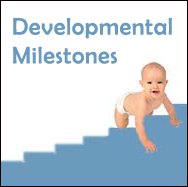 The Most Significant Developmental Milestones: Understand Your Child all the Way through the 6 Stages of Child Development. |
 A Newborn Development Guide About the First Physical, Psychological and Social Infant Milestones and How to Handle Them! |
 In-Depth List of All the Baby Milestones Reached during the First Year: Exciting Insights into Physical, Psychological and Social Baby Development. |
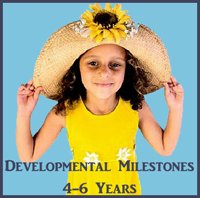 A Guide to the Early Child Development Stages and a List of Child Development Milestones from 4-6 Years. |
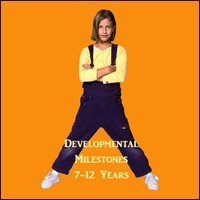 Stages of Child Development from 7-12 Years: A list of Physical, Cognitive and Social Developmental Milestones. |
 Teen Development and Adolescent Development: Physical, Cognitive and Social Developmental Milestones. |
Other Child Development Articles
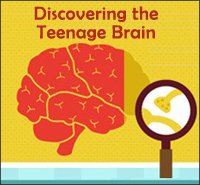 Judgment Call: Understanding the Teenage Brain. |
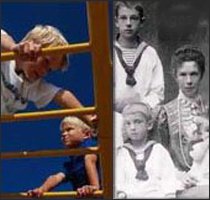 A Fascinating Journey into the Psychology of Children: From the Grand Masters' Fixation with Development Stages to the Context Focus of Today! |
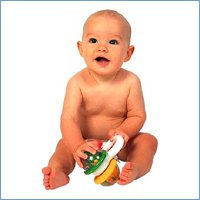 Jean Piaget's Object Permanence Developmental Stages: Theoretical Outline, Modern Critique and Parental Advice! |
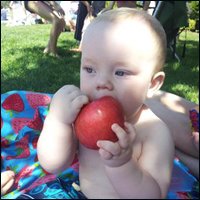 Keeping Track of Child Development Milestones: Spot Deviations like Early ADHD or Autism Symptoms. |
Back to the top of this page about Inspiring Toddler Development Guide, a Long List of Toddler Milestones and Positive Parenting Tips for Parenting Toddlers
Go to the Positive Parenting Ally Homepage







